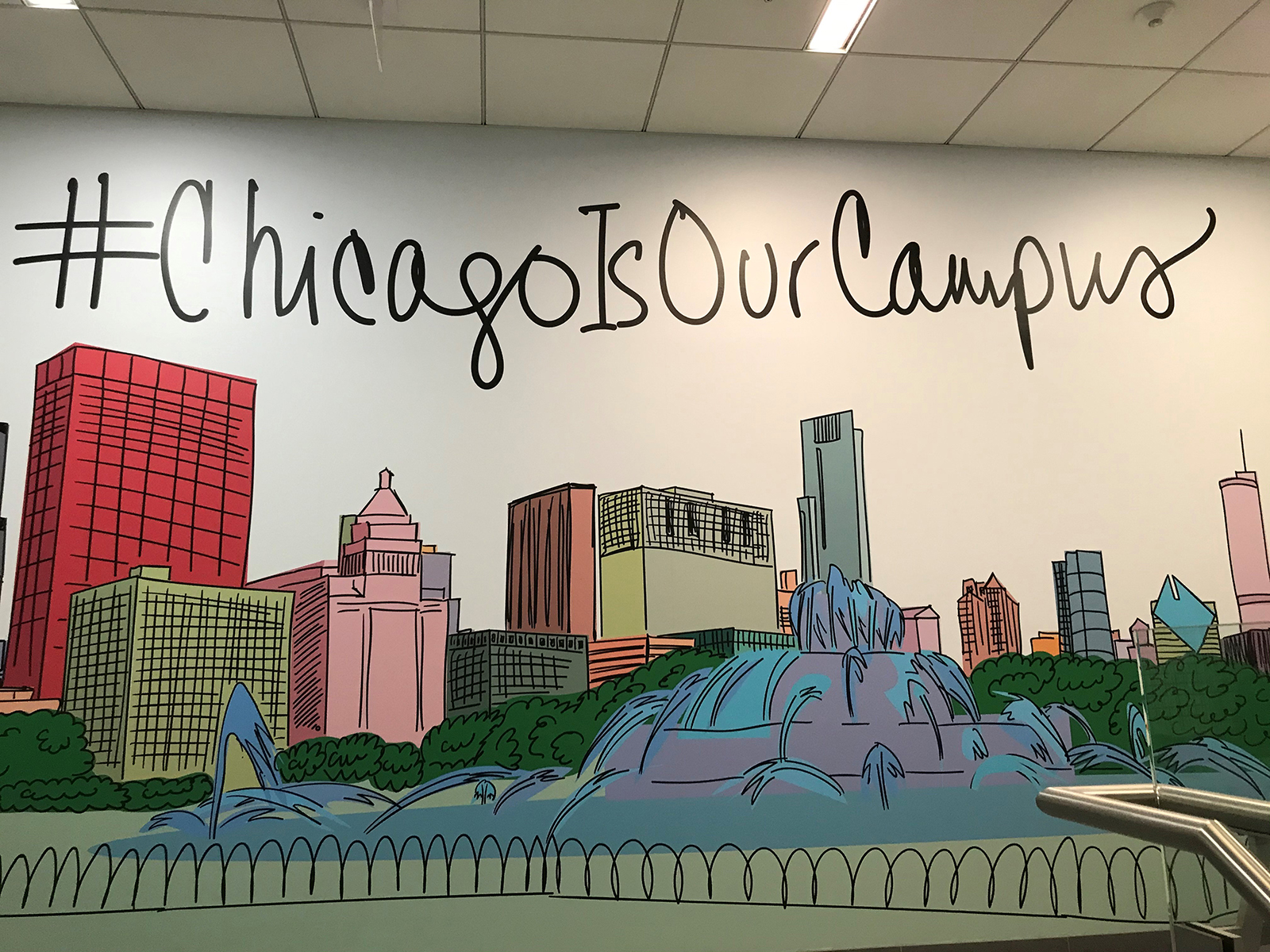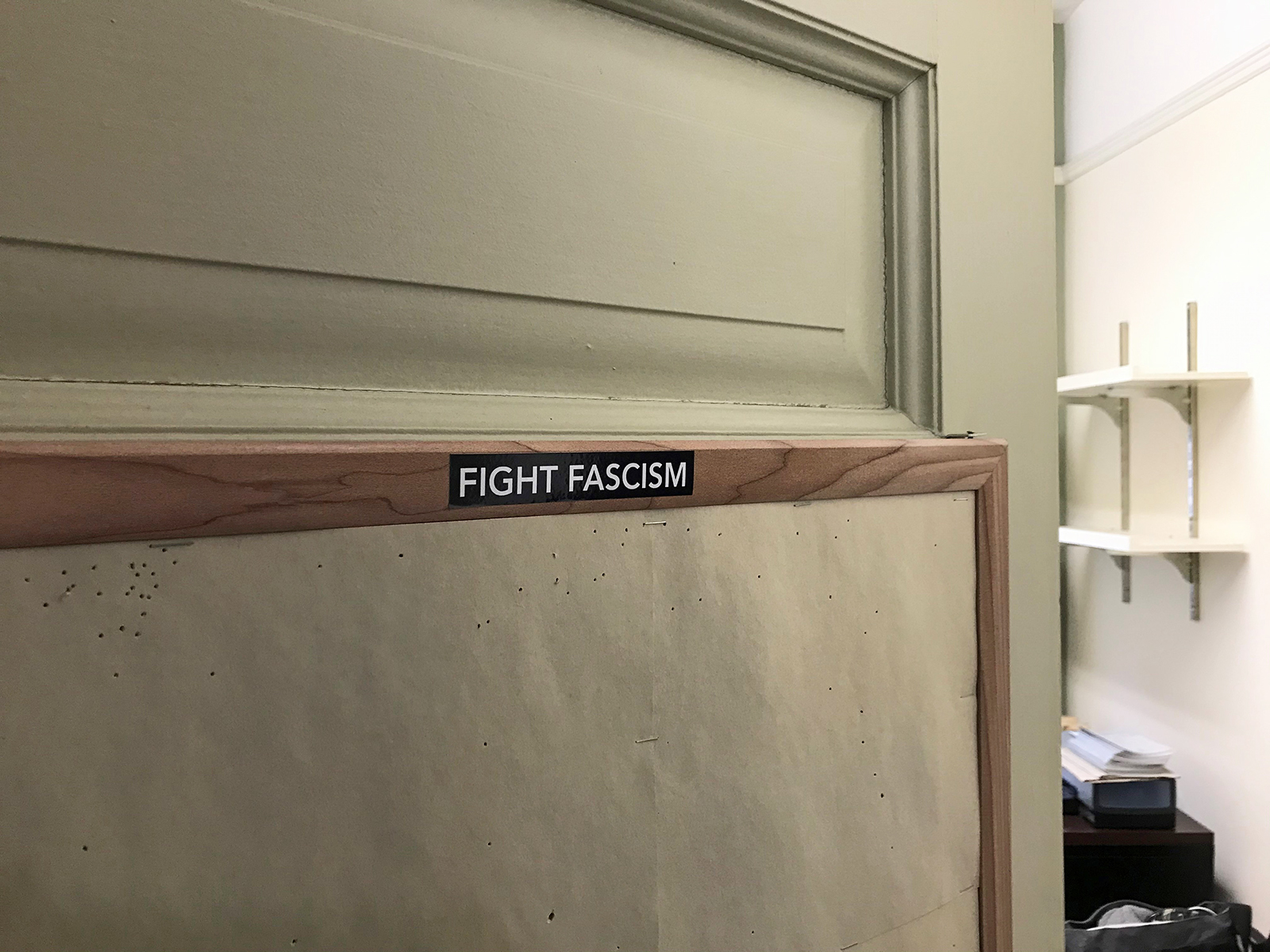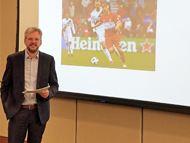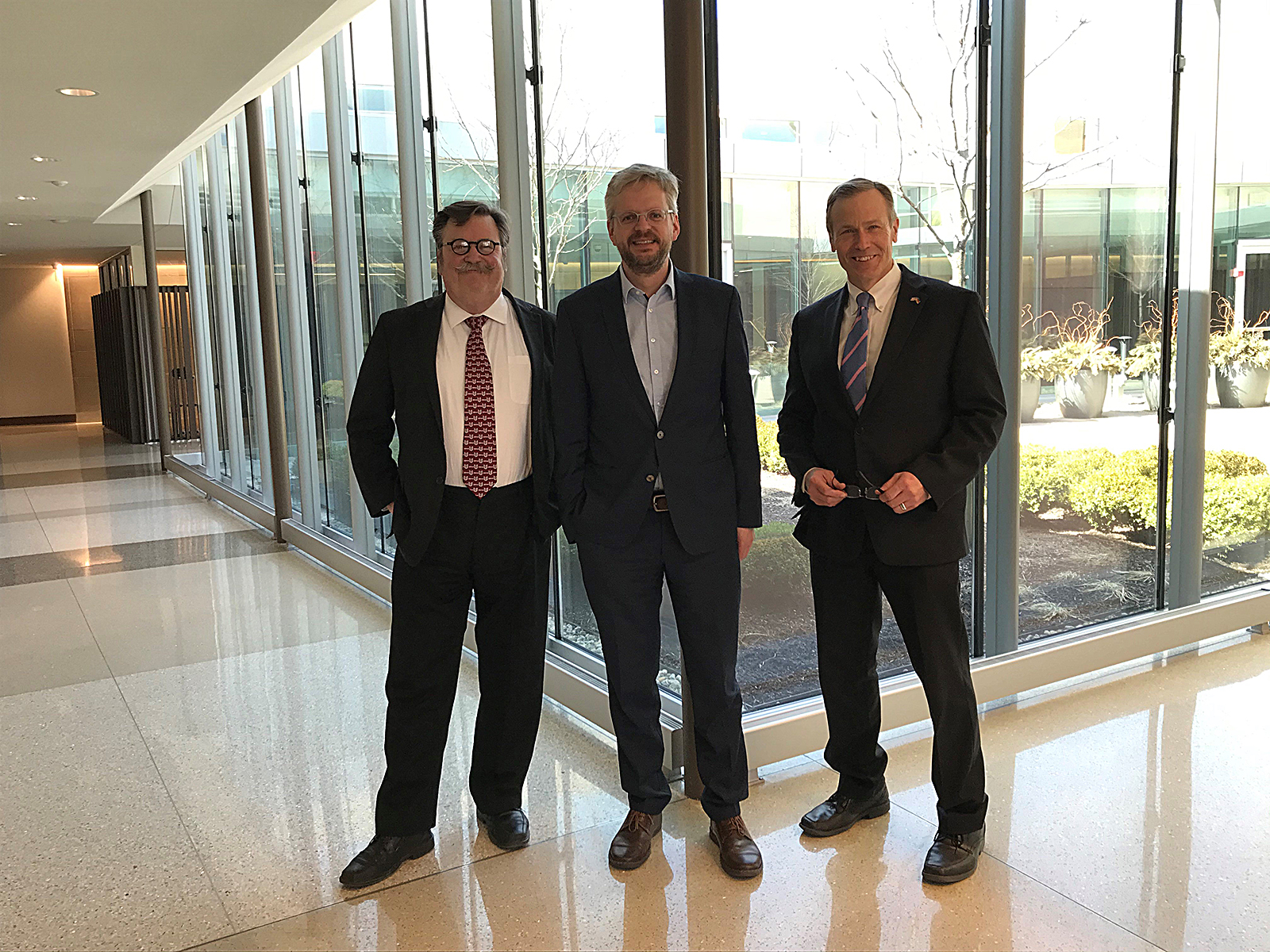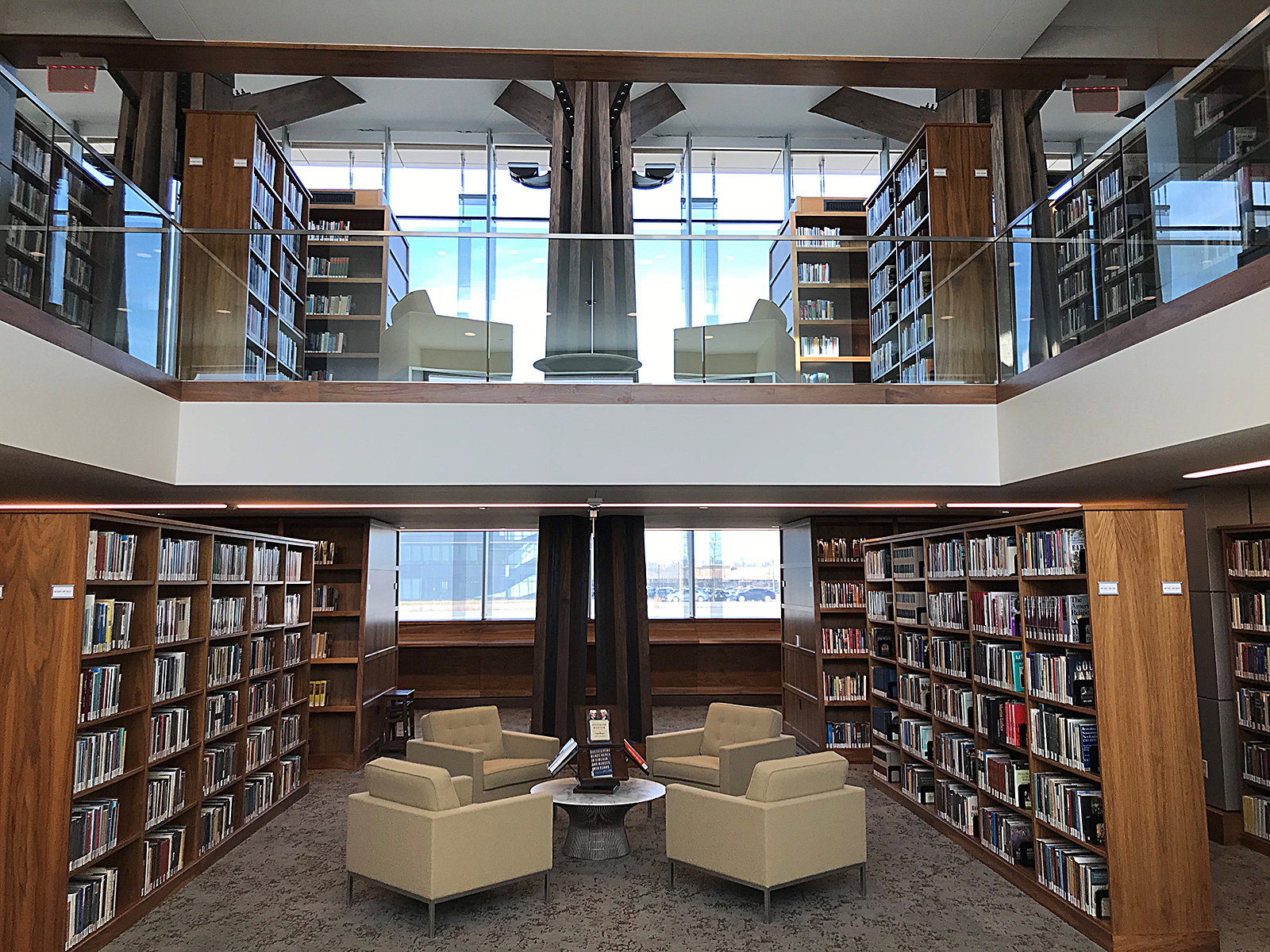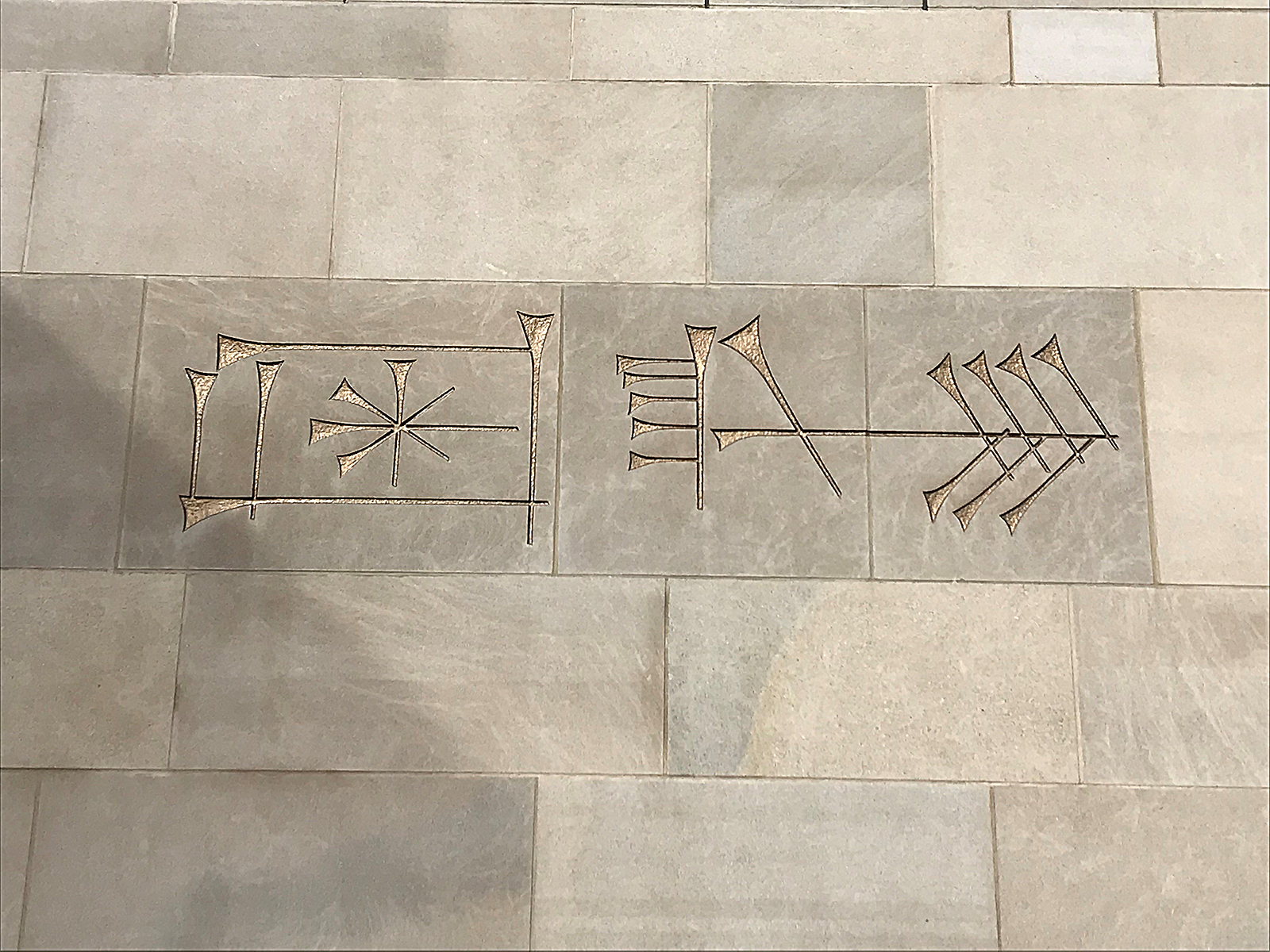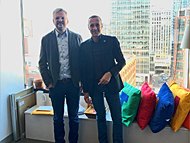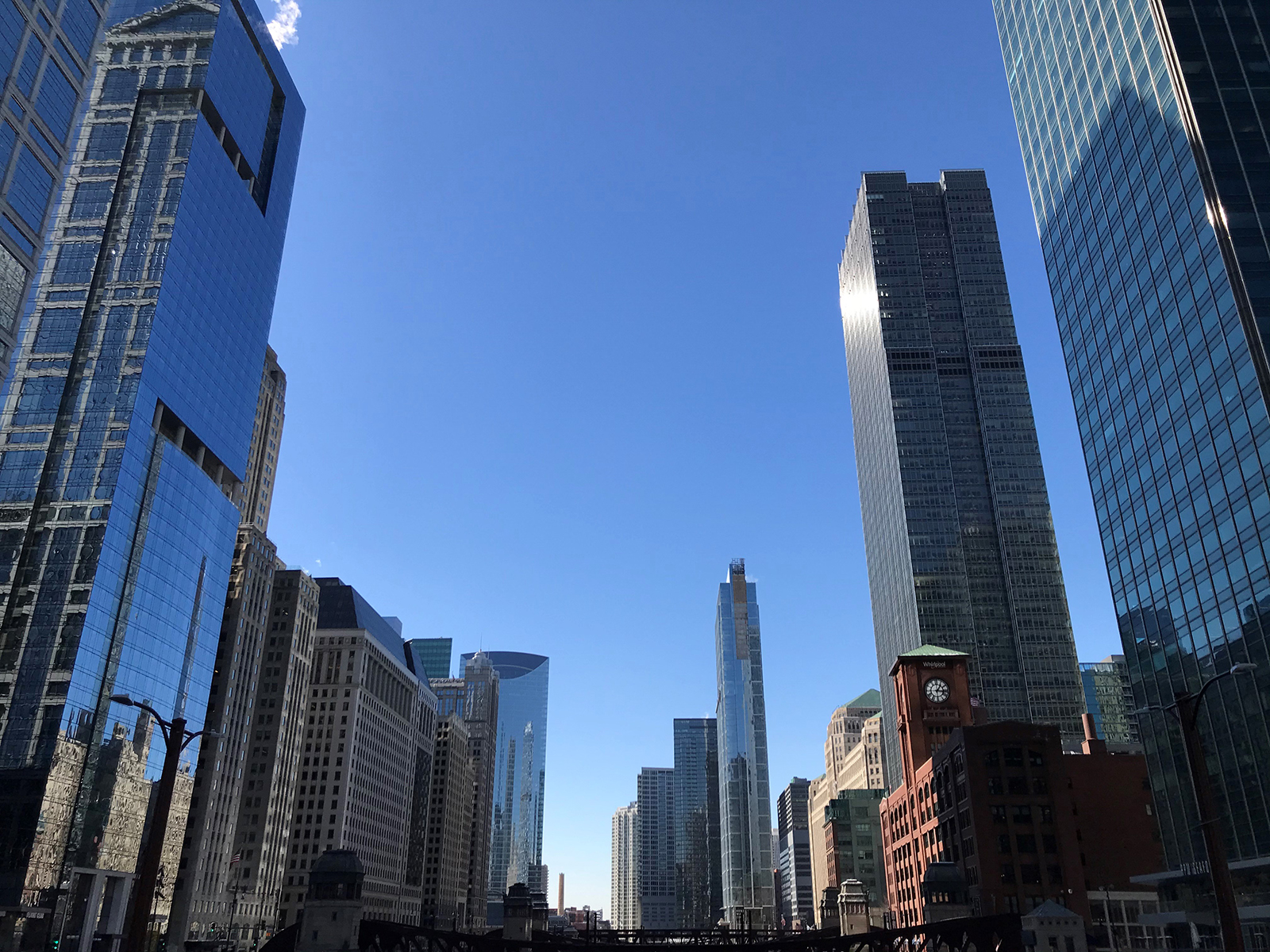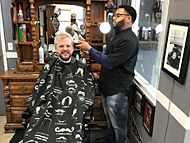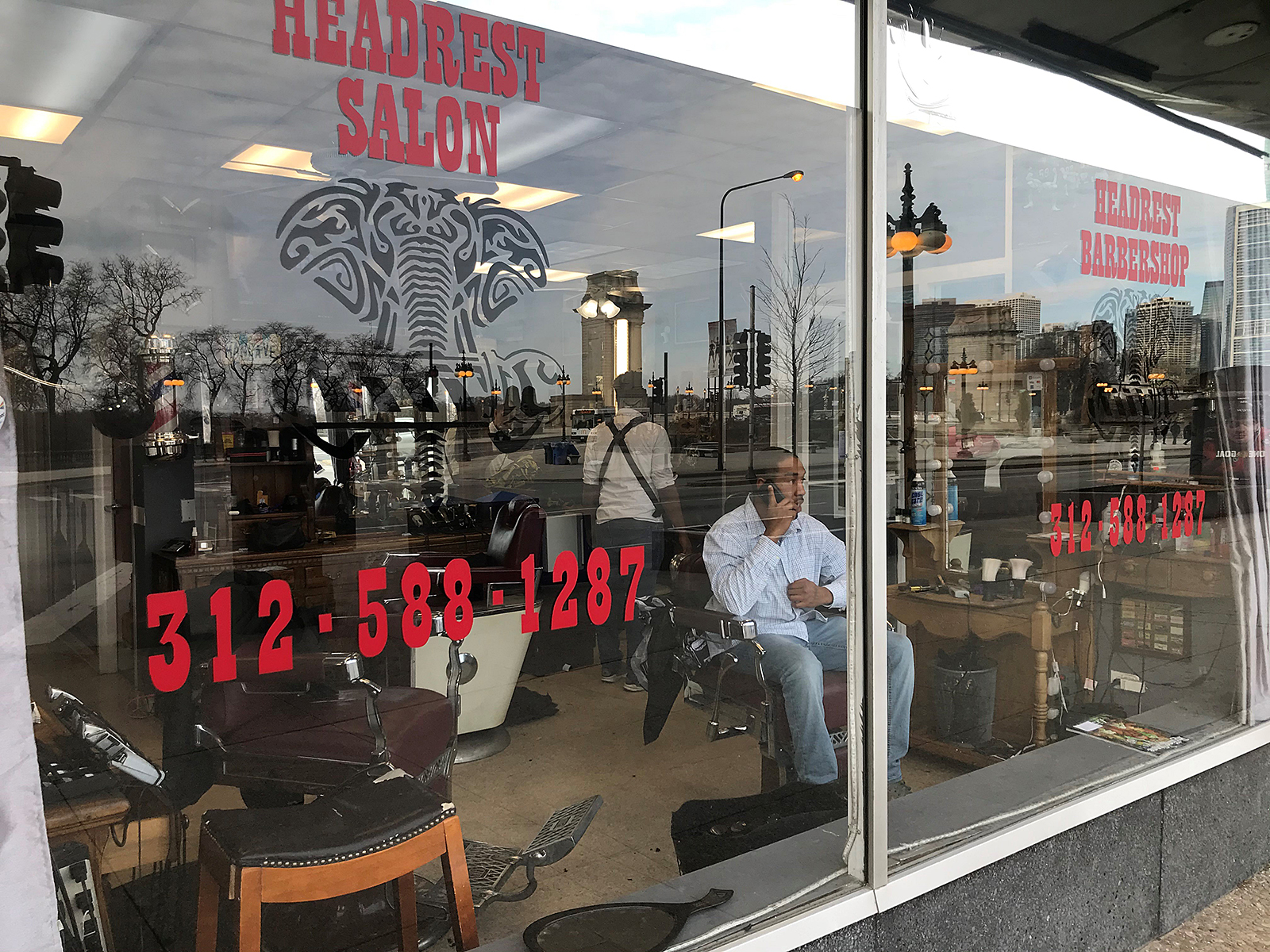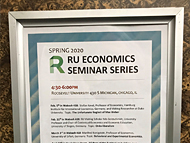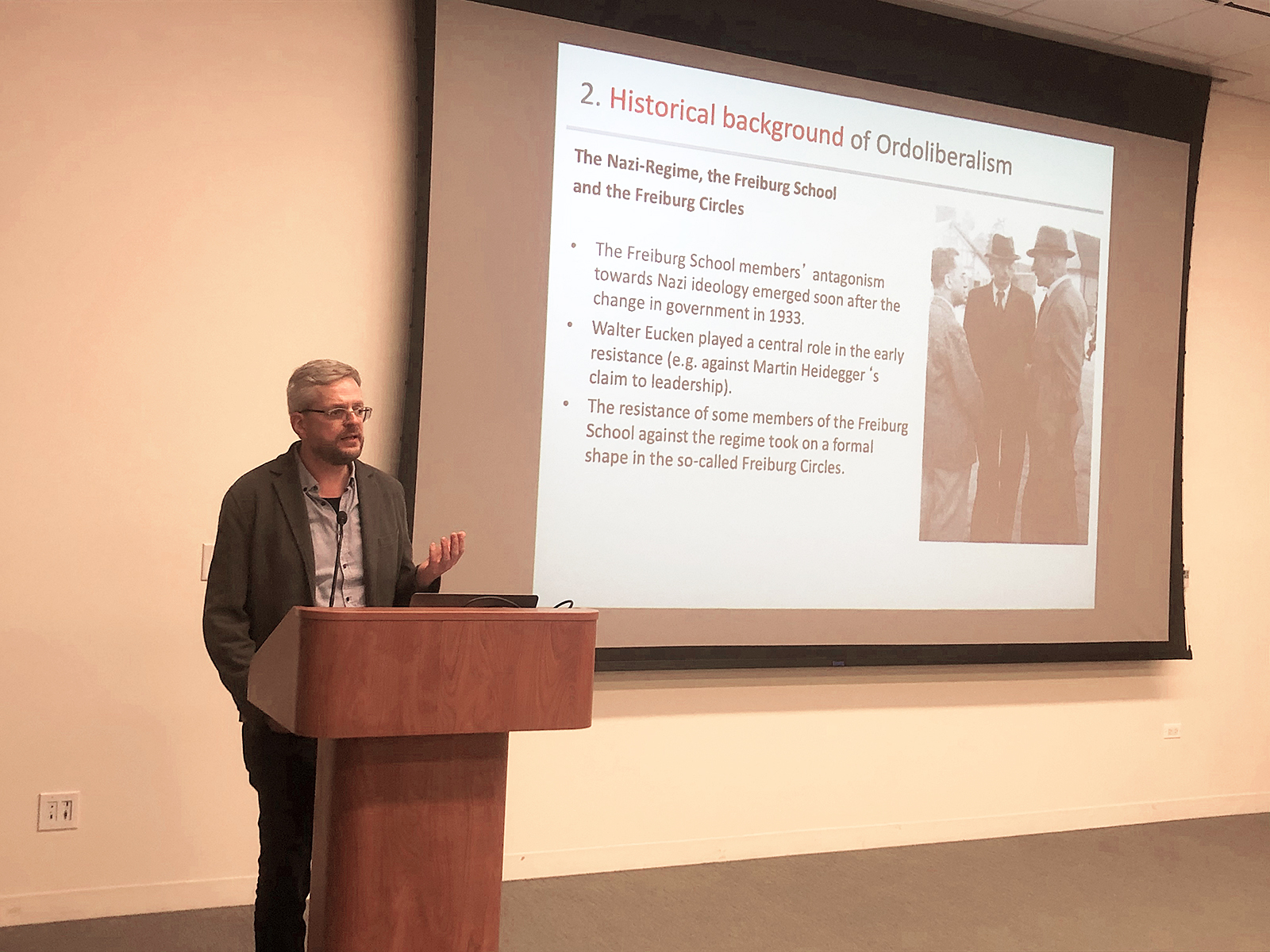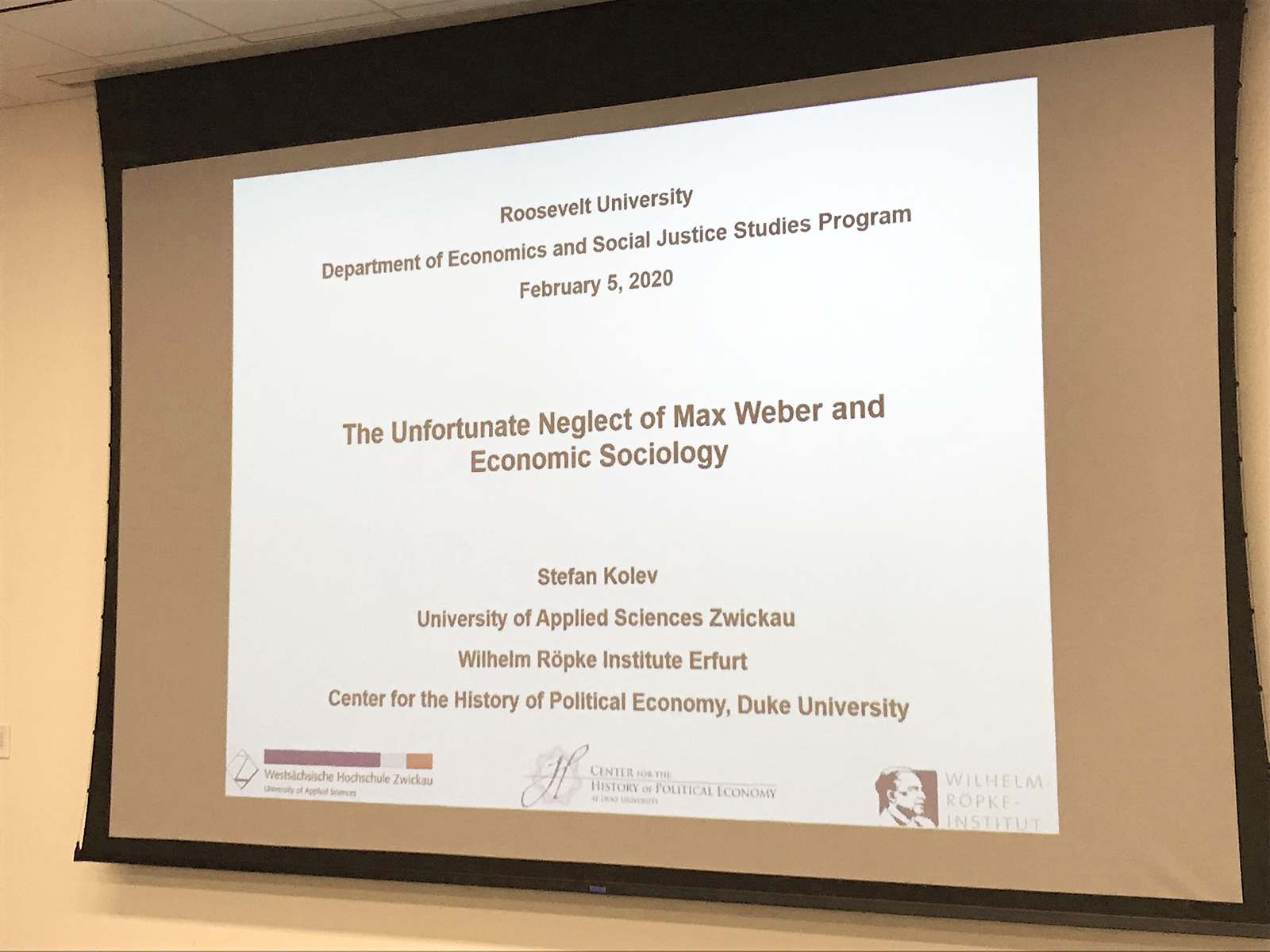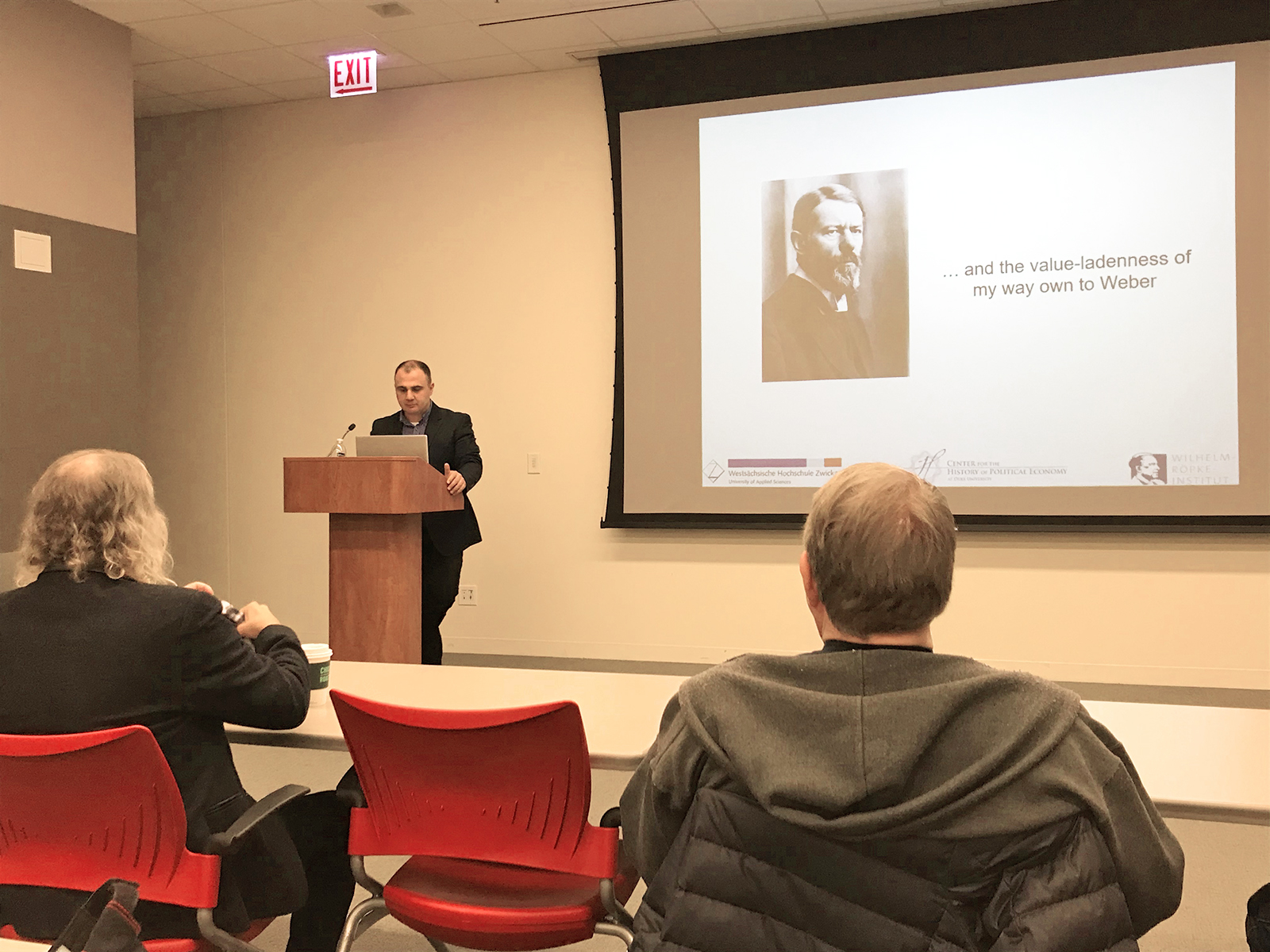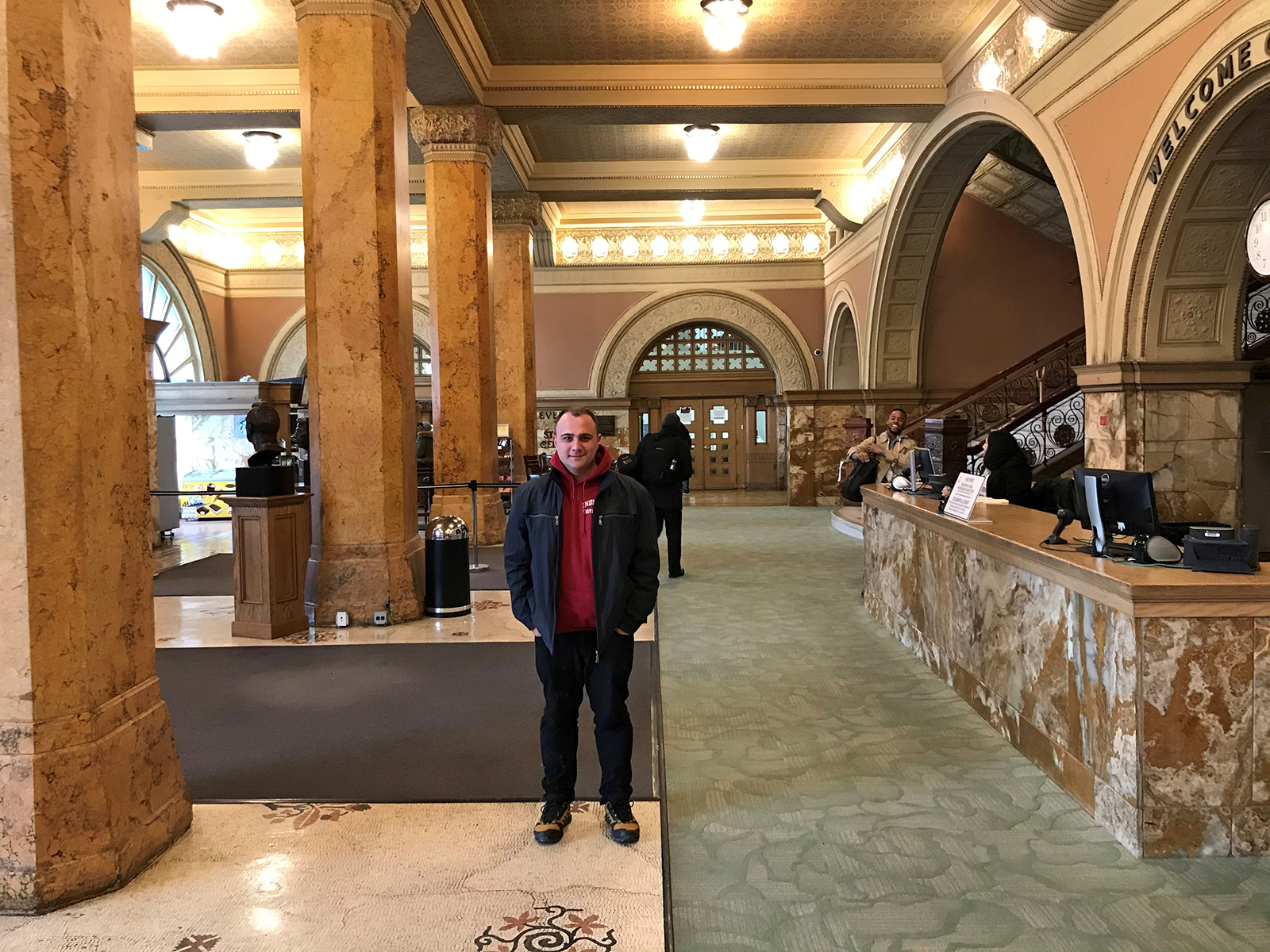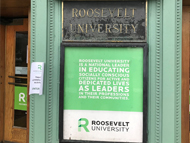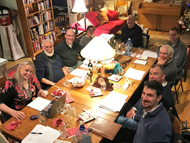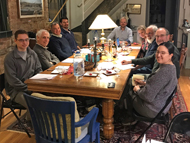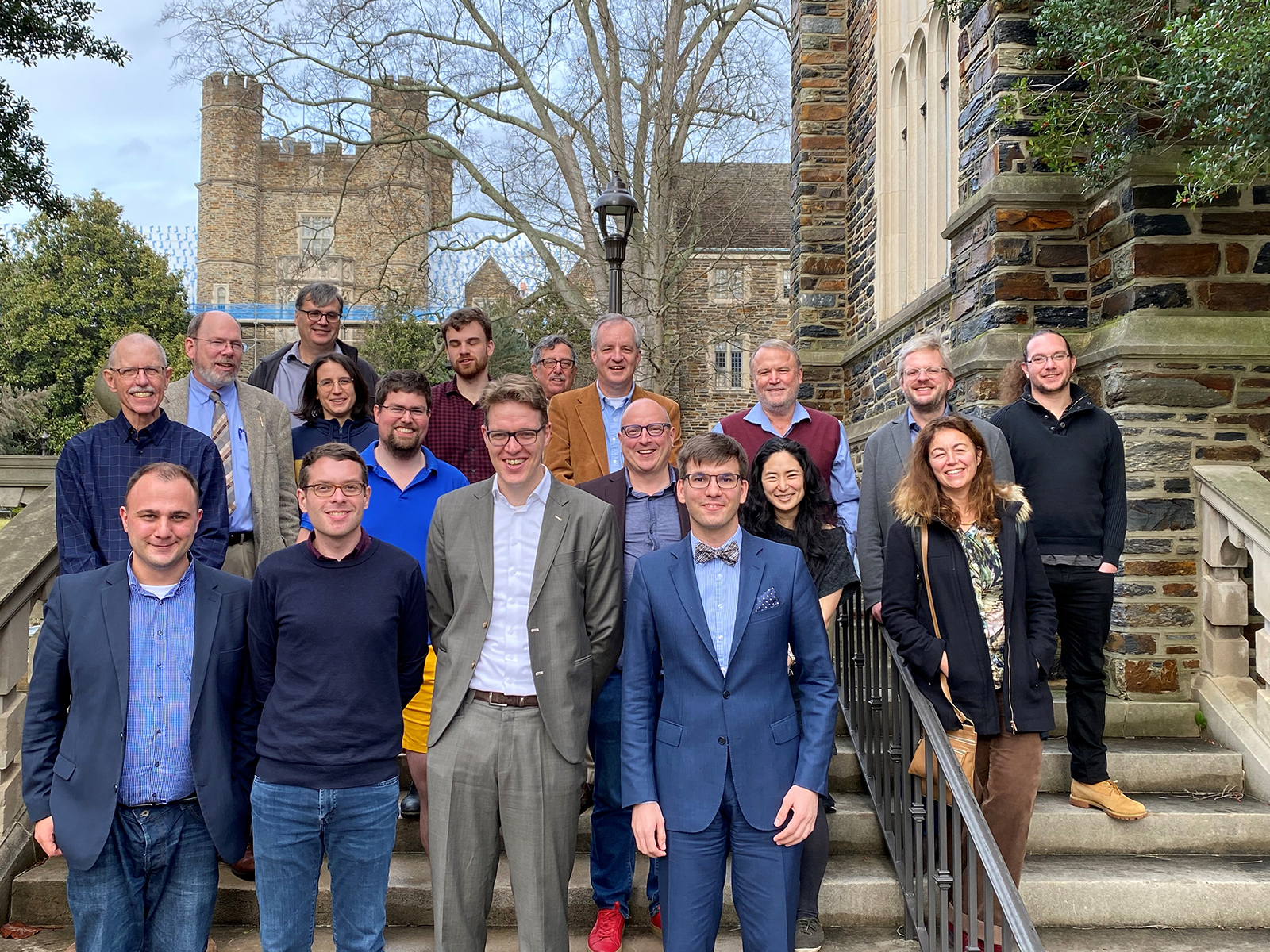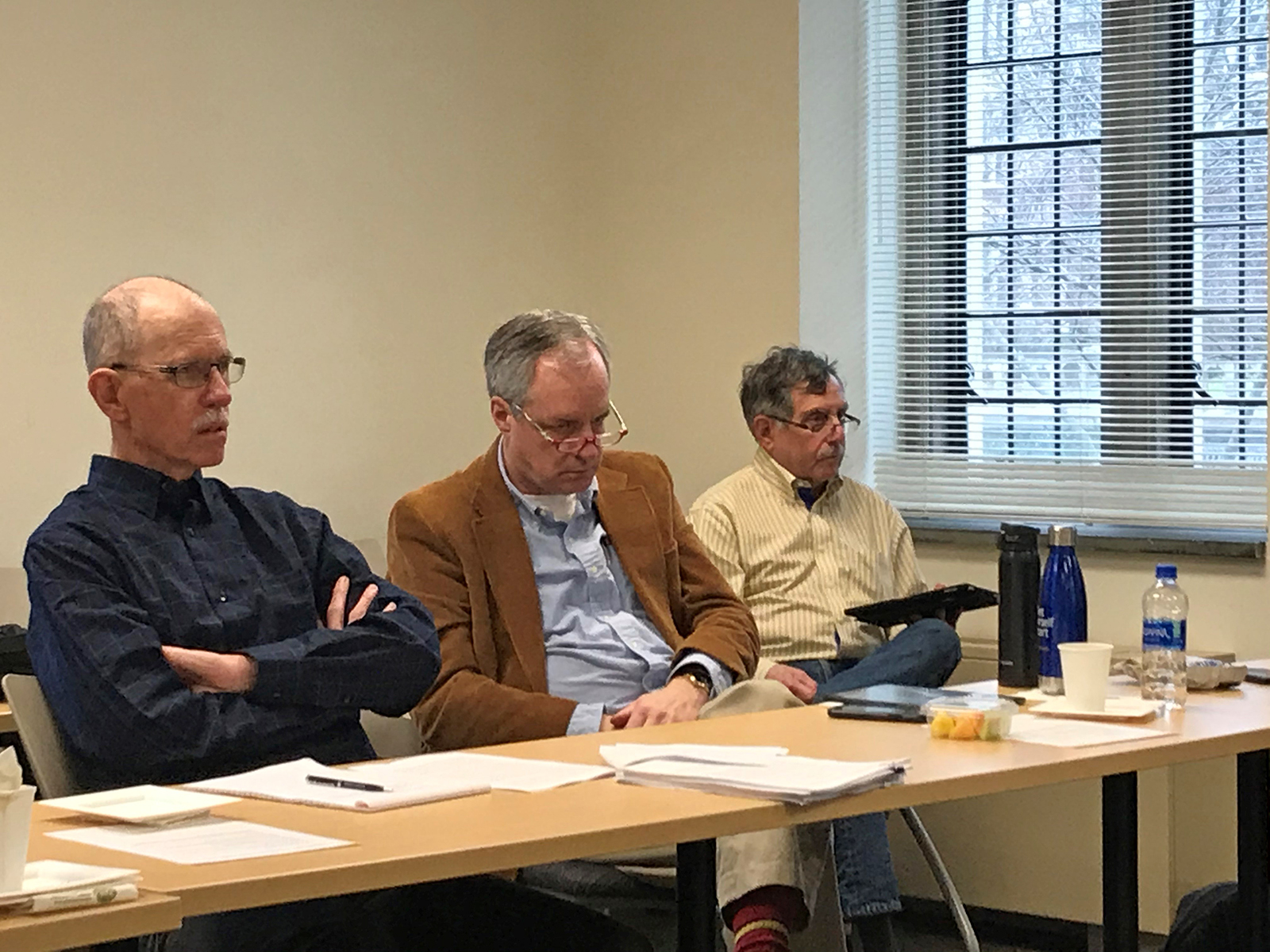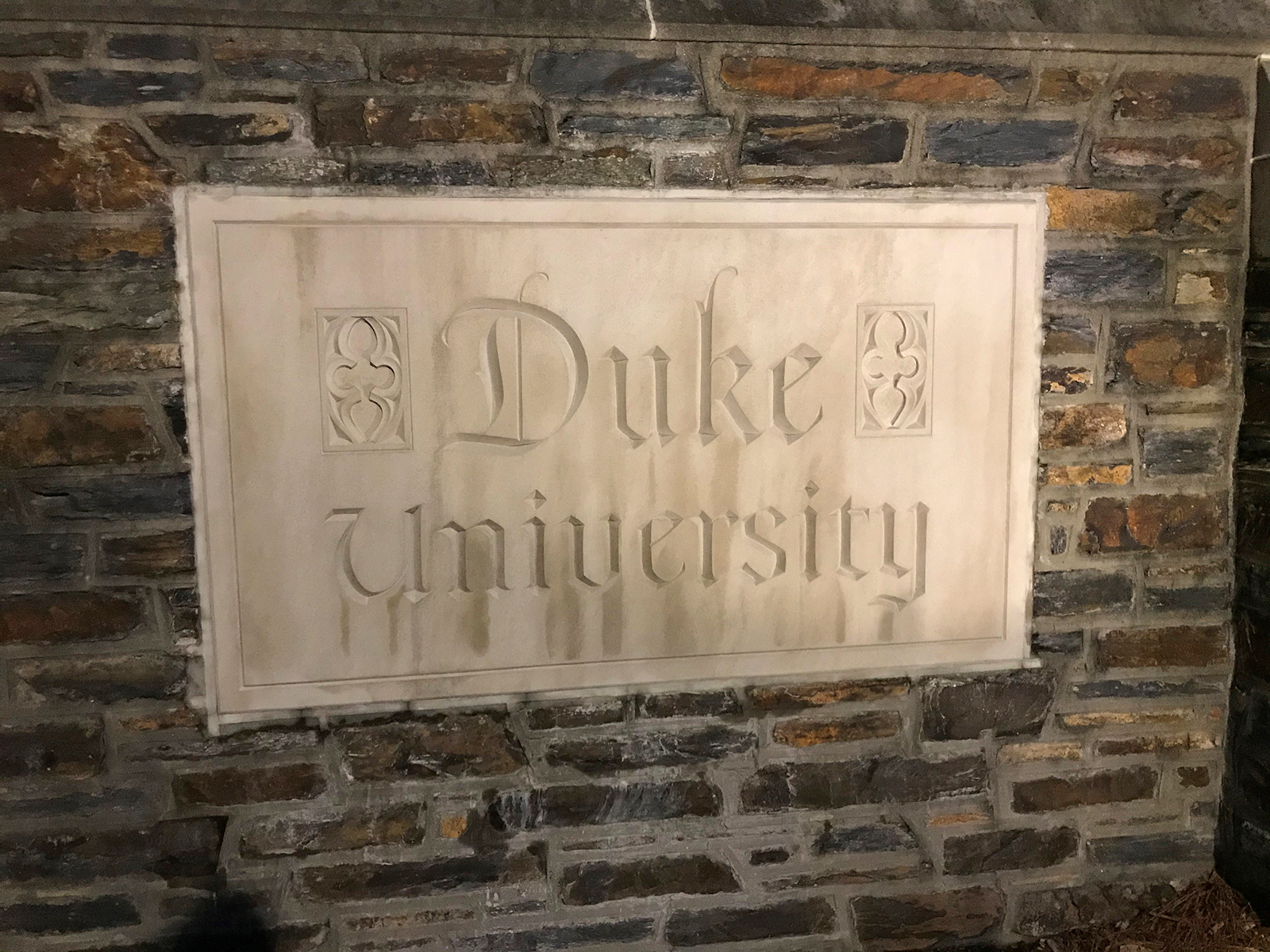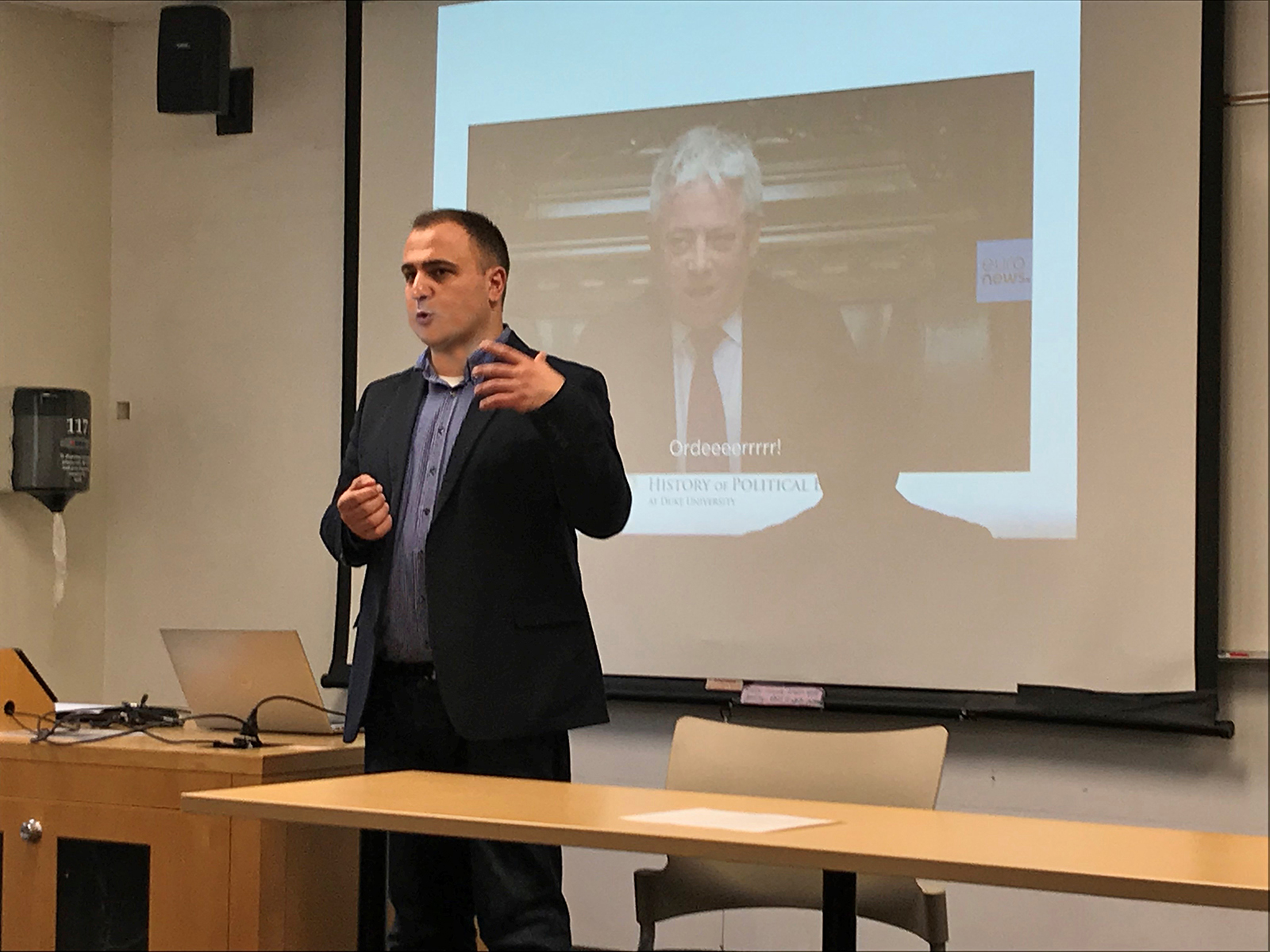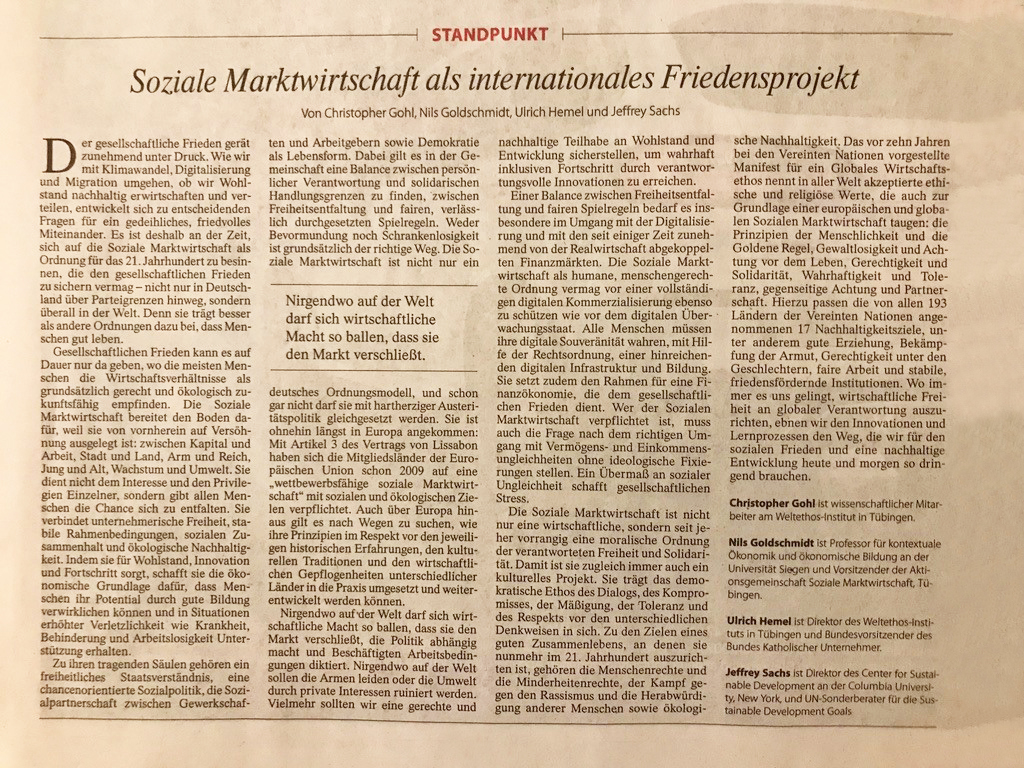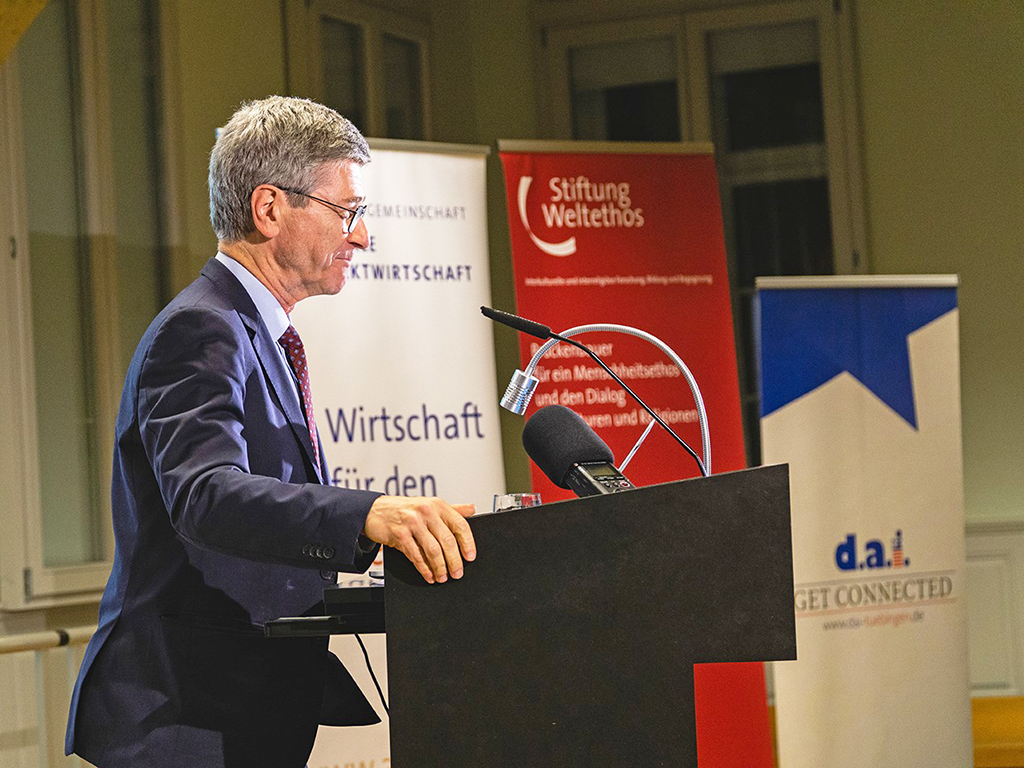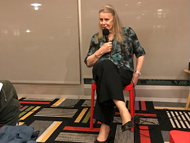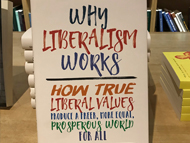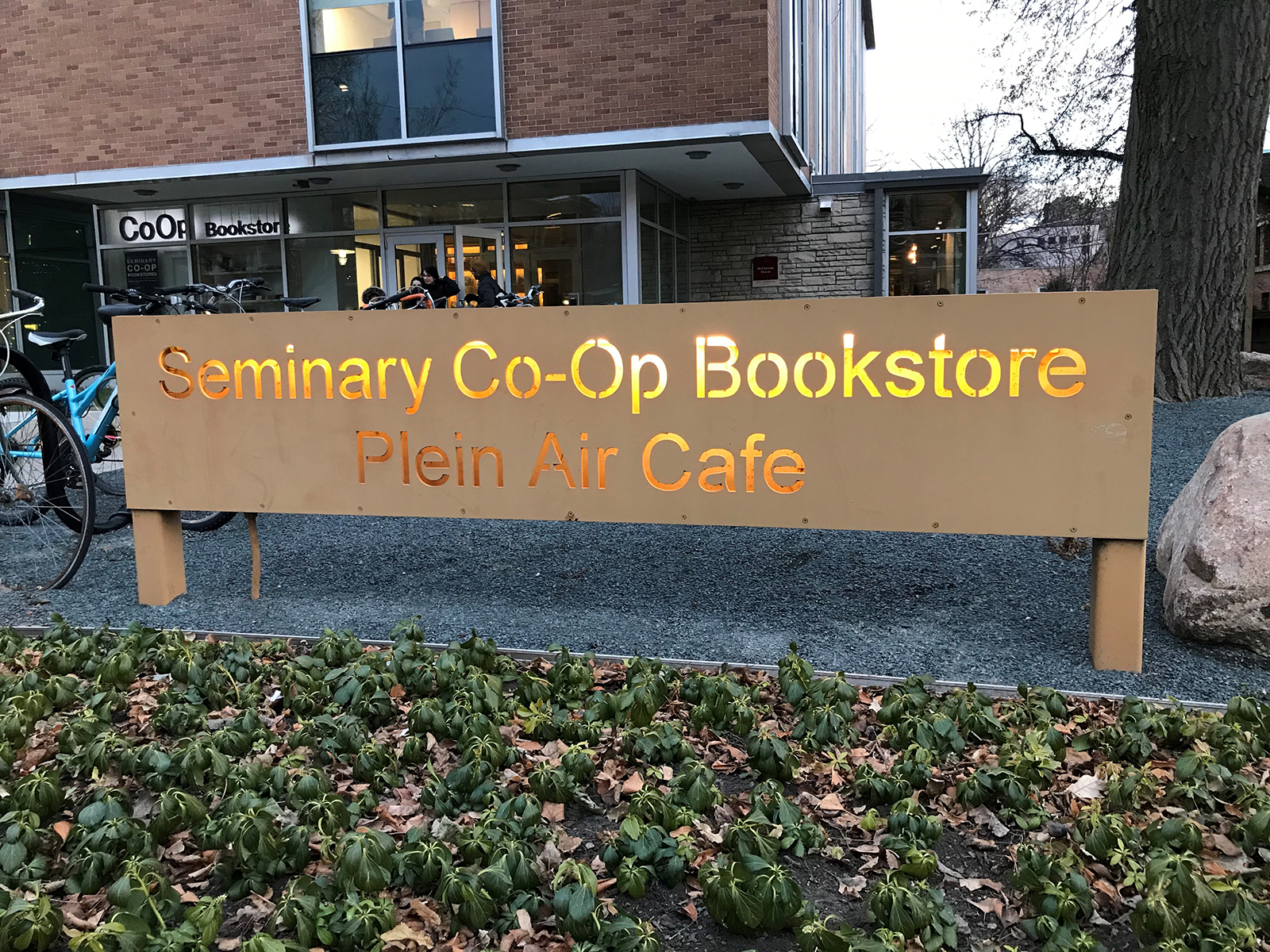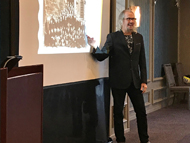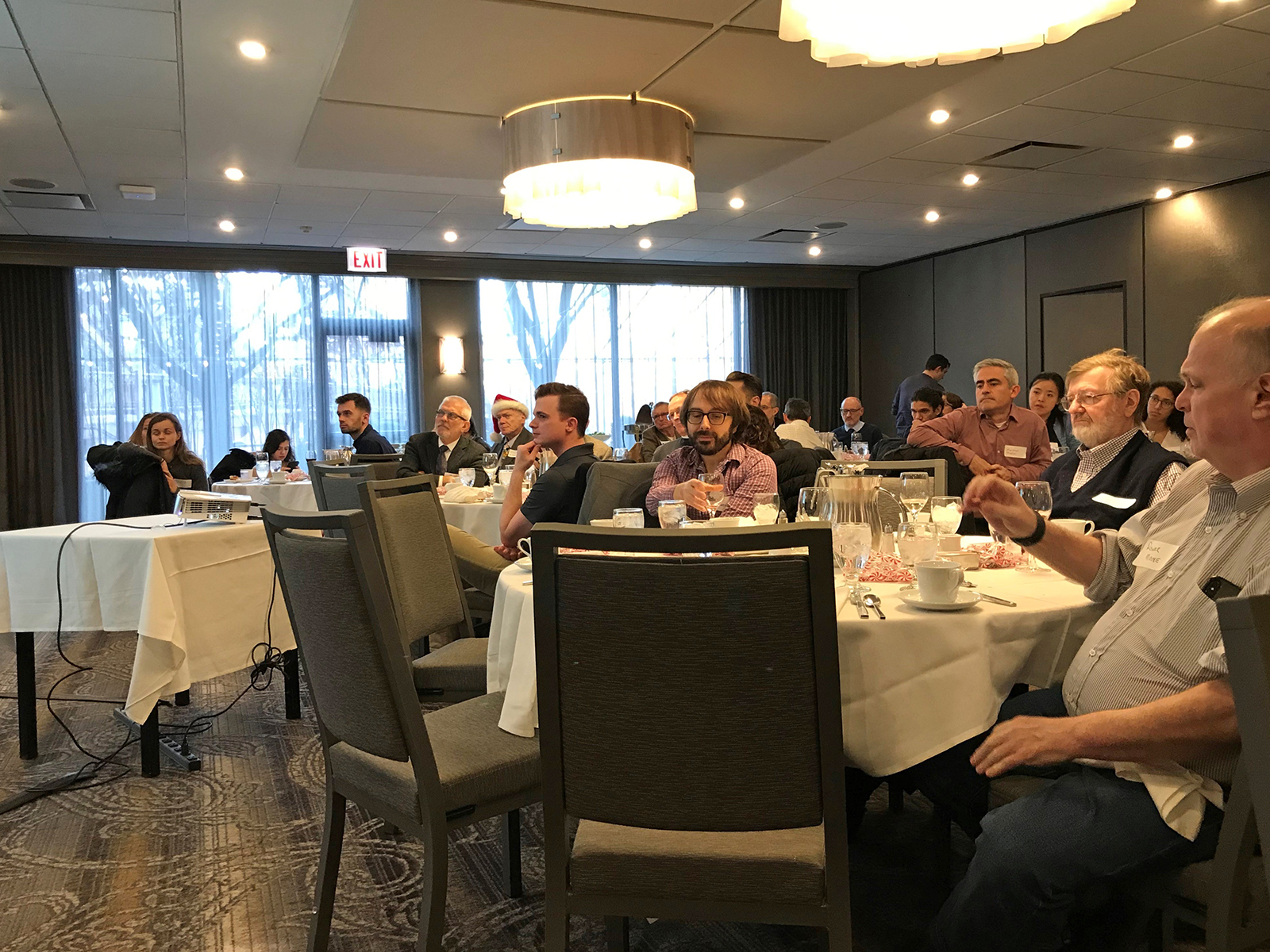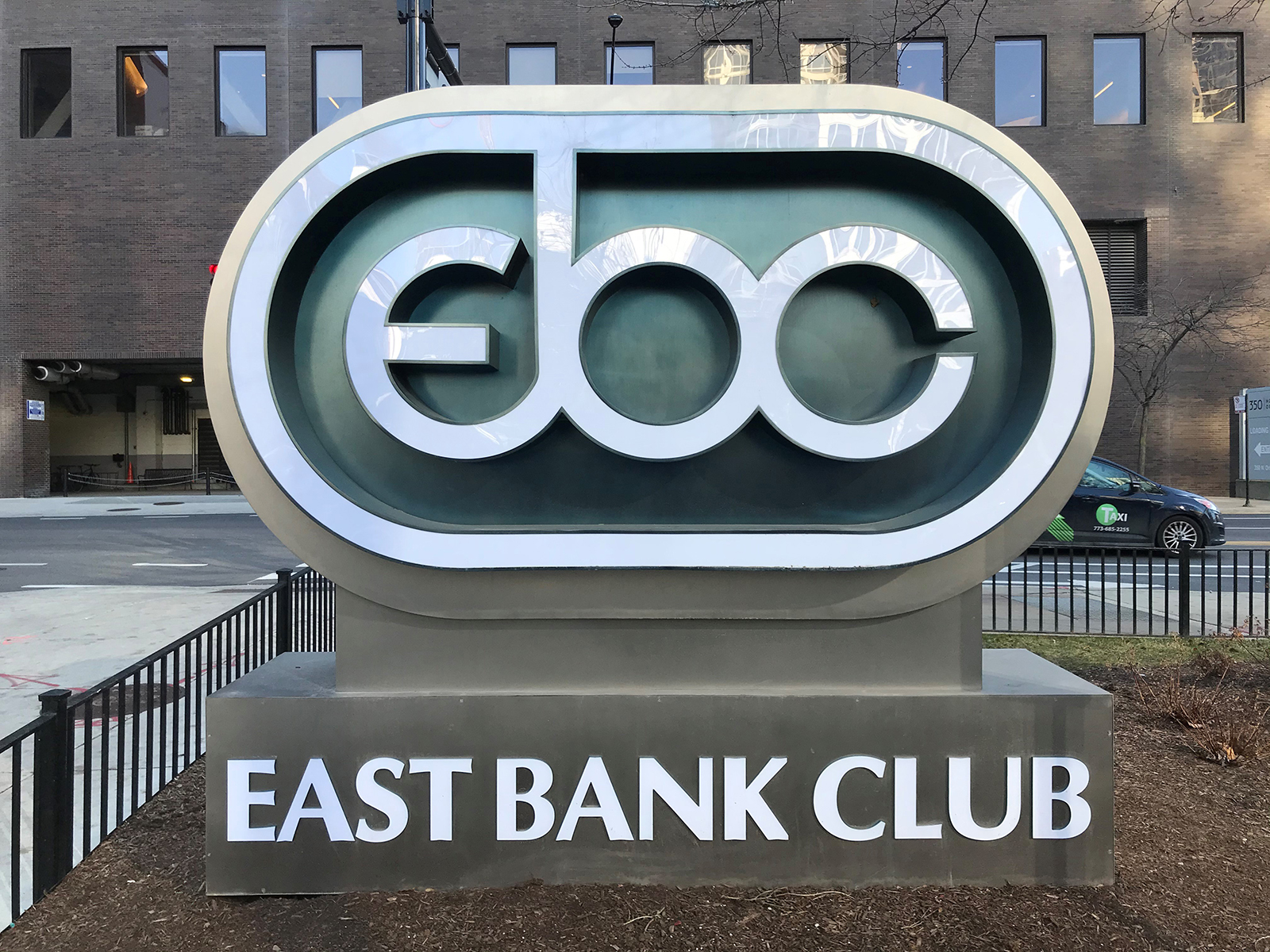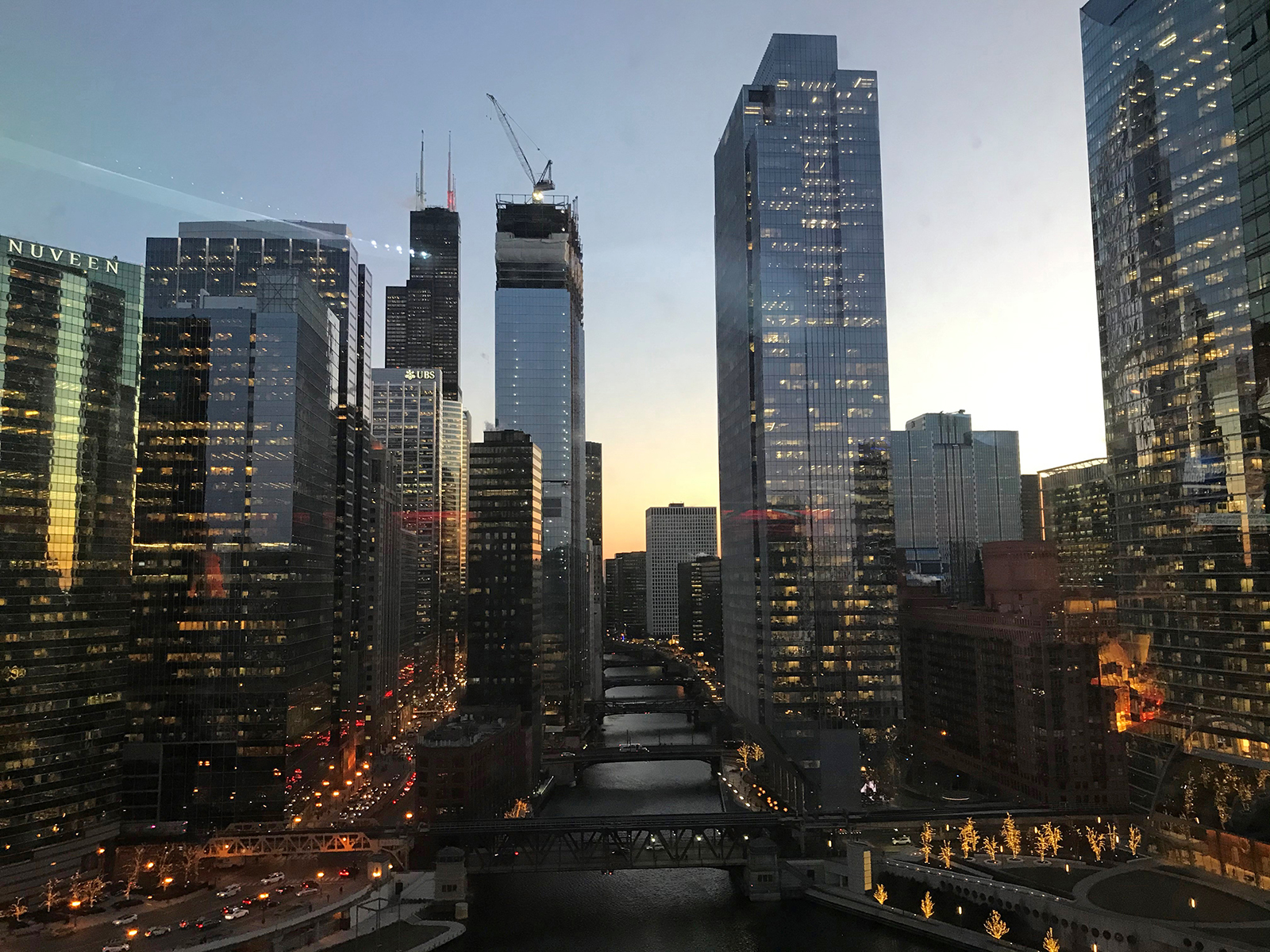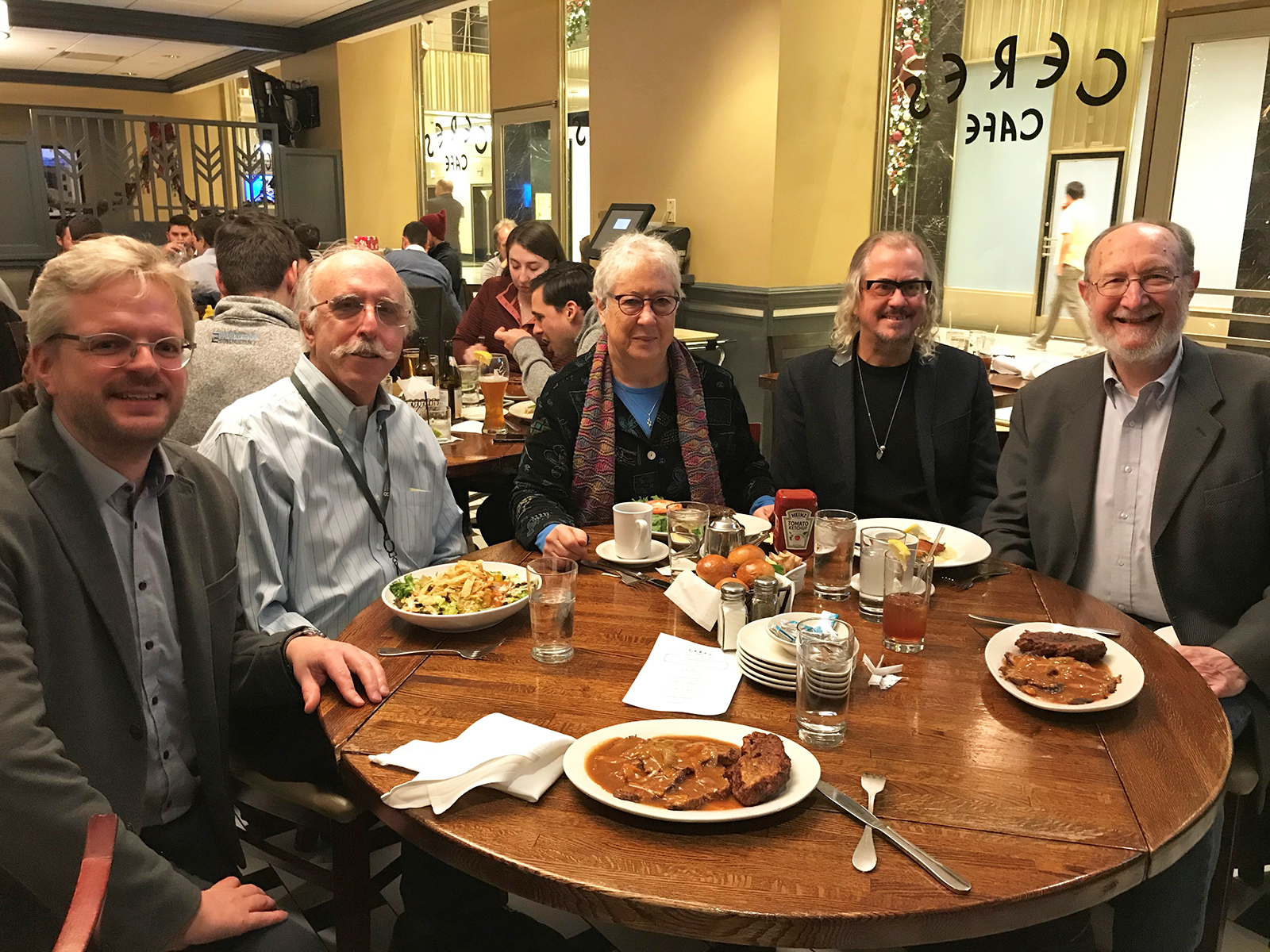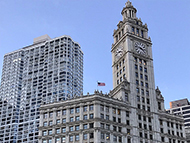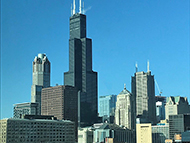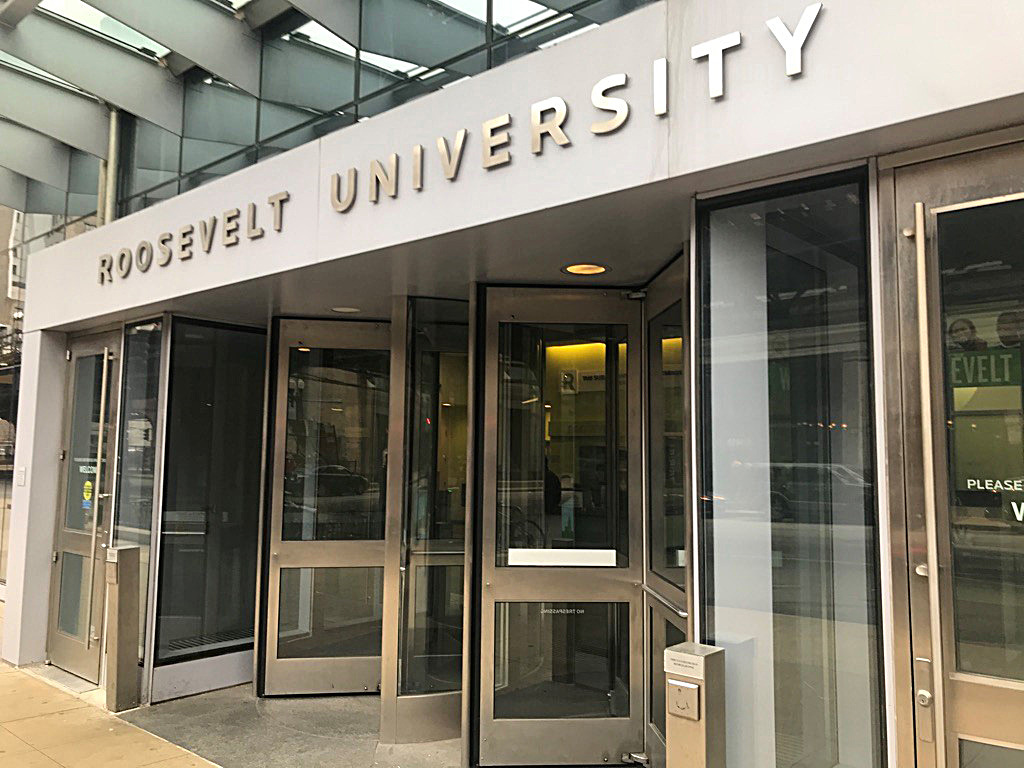| |



The Social Market Economy Goes to America #12
“Due to the special circumstances of the corona crisis, the adventure of the "The Social Market Economy Goes to America" has now also been temporarily interrupted. The last few months have been inspiring, I have had many intensive discussions about the interpretation of liberalism on both sides of the Atlantic. A thread of conversation that will now be continued virtually - and which will also lead to a revival of this little blog now and then. I thank all my friends and colleagues in the US - and especially at Roosevelt University - for the past few months, which have been really wonderful!
"Fight Fascism“ was placated on my office door in Chicago when I moved in December last year. For an ordo-liberal, of course, this fits perfectly. The experience of the inhumane National Socialist dictatorship and the resistance of Walter Eucken and other members of the Freiburg School during this time is a pillar for their commitment to a free society based on equality of opportunity. We should not lose sight of the principle of freedom in the present time either. For all the necessary, even drastic, measures currently being taken to combat the spread of the corona virus effectively, it is also crucial to preserve democratic decision-making processes and individual freedom of action and responsibility. Not infrequently has Hayek's "Road to Serfdom" come to my mind in recent days.”
Nils Goldschmidt, back in Germany, for the ASM.
|


The Social Market Economy Goes to America #11
“What a voyage on the Greyhound to Indianapolis! A relaxed trip and inspiring talks at the Liberty Fund last week, among others with Hans Eicholz and Peter Mentzel. All under the sign of freedom, as symbolized by the Liberty Fund logo: This is the earliest-known written appearance of the word 'freedom' (amagi), recorded around 2300 B.C. in the Sumerian city-state of Lagash. But the ordoliberal rules of the game were not absent at my Liberty Fund presentation, here with Bastian Schweinsteiger in the Chicago Fire jersey. Ludwig Erhard already knew how well soccer is suited as a metaphor. He writes in his bestseller Prosperity through Competition (Wohlstand für alle): 'I believe that, as the referee is not allowed to take part in the game, so the state must not participate. In a good game of football it is to be noted that the game follows definite rules; these are decided in advance. What I am aiming at with a market economy policy is – to continue with the same illustration – to lay down the order and the rules of the game'.”
Nils Goldschmidt live from Chicago for the ASM - to be continued.
|


The Social Market Economy Goes to America #10
“Proper education and good job training are core elements of the Social Market Economy, which aims to strengthen personal responsibility for one's own life. Last Friday I had an enlightening and informative conversation with Mario Kratsch, Vice President of the German-American Chamber of Commerce of the Midwest, in wonderful surroundings here in Chicago. Mario told me about the Chamber's efforts to establish the German Dual Education System in the US - in an adapted form, of course. This is not only about ensuring the appropriate structure for job training, but above all about giving young people the freedom to develop and make the most of their own lives. Three elements are in the foreground in their efforts: 1. earn while you learn, 2. receive an associate's degree without accumulating debt, 3. pursue a career with upward mobility. And there is no question that companies also benefit, so many are willing to get involved in order to have access to a sustainable pipeline of young talents and increased employee retention. Education and wealth go hand in hand, as Alexander Rüstow made clear over and over again: 'It is obvious that is not in keeping with the principles of fair competition based solely on performance when a competitor has a substantial (and perhaps uncatchable) advantage only because he exercised the necessary caution in choosing the right parents and starting out as the son of a rich father. In fact, the claim of equality of justice extends essentially to two things: to education and to wealth‘.”
Nils Goldschmidt live from Chicago for the ASM - to be continued.
|


The Social Market Economy Goes to America #9
“When you talk about ordoliberalism, at the very least you should make sure that your hair is in order! I did as much on Tuesday at the Headrest Barbershop on Michigan Avenue. In the evening we had a good discussion at Roosevelt University about the philosophical and historical background of ordoliberalism and the Social Market Economy. In this dialogue it became aparent, yet again, how important it is to talk about the different conceptions of 'neoliberalism' and to make it clear that the Social Market Economy is a dynamic, people-oriented concept that meets the respective challenges of the time.”
Nils Goldschmidt live from Chicago for the ASM - to be continued.
|


The Social Market Economy Goes to America #8
“Return visit! Stefan Kolev, who a few weeks ago organized this wonderful conference on ordoliberalism at the HOPE Center of Duke University which I was privileged to attend (see: The Social Market Economy Goes to America #6), was a guest at the Wednesday’s research seminar at Roosevelt University, which is not only scientifically but also architecturally remarkable. Stefan gave an impressive and thoughtful talk on "The Unfortunate Neglect of Max Weber and Economic Sociology". Weber's reflections on the rapid changes of his time, the process of rationalization and the question of how to capture this scientifically are an important piece in the mosaic of the development of ordoliberalism and the Social Market Economy. The lecture was followed by a transatlantic dialogue on economic sociology and contextual approaches in economics. The next day there was also a premiere: At the general meeting of the Röpke Institute in Erfurt, this currently so difficult state capital of Thuringia, Stefan and I, as members of the board, were online for the assembly by video. A way to have Röpke on both sides of the Atlantic at the same time.”
Nils Goldschmidt live from Chicago for the ASM - to be continued.
|


The Social Market Economy Goes to America #7
“A private seminar with Deirdre McCloskey at her home! What a fantastic group of scholars, including two distinguished colleagues from the history of economic thought domain, John F. Berdell and Joseph J. Persky. And here, too, the Social Market Economy is literally 'on the table.' I had the pleasure of presenting a joint paper by Roland Fritz, Matthias Störring and myself and discussing it with our colleagues: 'The Three Roads to Ordoliberalism. Continuities and Discontinuities.' In this piece we examine the sources from which ordoliberalism and thus also the Social Market Economy emerged and developed. We show the great importance of the so-called German Historical School for this development, address methodological peculiarities and show how important the resistance against National Socialism was for the ordoliberals. If you are interested, we would be happy to provide you with a working version of the paper.”
Nils Goldschmidt live from Chicago for the ASM - to be continued.
|


The Social Market Economy Goes to America #6
“Last weekend Stefan Kolev, member of our advisory board, organized a conference at Duke University on 'The Orderly Economists: Transatlantic Reformulations of Twentieth-Century Political Economy'. In the inspiring atmosphere of the Center for the History of Political Economy (HOPE), four papers were discussed that explored the relationship between continental and Anglo-Saxon liberalism. It was also a special opportunity to meet such esteemed colleagues as Bruce Caldwell, Kevin D. Hoover, Steven Medema and E. Roy Weintraub again. It became clear in our discussion that the roots of liberalism on both sides of the Atlantic are rather different, and that the German intellectual tradition in particular is not always easy to convey. But the joint discussion is all the more important, because the goal of the liberals is the same: the good life in a free society. Of course, the conference also provided an opportunity to meet friends like Erwin Dekker, Daniel Nientiedt and Rok Novak.”
Nils Goldschmidt live from Chicago for the ASM - to be continued.
|


The Social Market Economy Goes to America #5
“Many of us started the New Year 2020 with the wish for a peaceful year. We are happy and also rather proud that, shortly before Christmas, Frankfurter Allgemeine Zeitung published our appeal 'Social Market Economy as an International Peace Project', for which we were able to win prominent US economist Jeffrey Sachs as a co-author. Jeffrey Sachs who visited us in Tübingen last fall not only feels an affinity for the Social Market Economy, but also to the Weltethos-Institut where our two other co-authors Ulrich Hemel and Christopher Gohl are based. Together we are convinced that social peace can only exist in the long run when most people feel that economic conditions are fundamentally just and ecologically sustainable. The Social Market Economy prepares the ground for this because it is designed for reconciliation: between capital and labor, urban and rural, rich and poor, young and old, growth and environment. It does not serve the interests and privileges of a few, but provides everyone with the chance to develop.”
Nils Goldschmidt live from Chicago for the ASM - to be continued.
|


The Social Market Economy Goes to America #4
“A few days ago Deirdre McCloskey presented her new book 'Why Liberalism Works: How True Liberal Values Produce a Freer, More Equal, Prosperous World for All' in the Seminary Co-op Bookstore at the University of Chicago. A fantastic bookstore with one of the largest collections of academic books in the world. And an impressive new publication by Deirdre! In her view, liberalism is an optimistic philosophy that depends on the power of rhetoric, not coercion, on ethics, freedom of speech and facts to succeed. This is very much in line with the message that we also want to send out with the Social Market Economy. This reminds me of the nice interviews we did with Deirdre last year and which are worth revisiting.”
Nils Goldschmidt live from Chicago for the ASM - to be continued.
|


The Social Market Economy Goes to America #3
“Tuesday I was at the Chicago Chapter of the American Statistical Association for a luncheon. Steve Ziliak spoke on "How large are your G-values? Try Gosset's Guinnessometrics when a little 'p' is not enough!" Ziliak made clear in a convincing and entertaining fashion (with the help of the beer brewer and statistician William Sealy Gosset) how careful we have to be when using econometric methods and why we should not rely on statistical significance as much, but rather keep an eye on the real problems. This reminds me of a quotation by Wilhelm Röpke from his late work Jenseits von Angebot und Nachfrage („A Humane Economy"): "Economics indeed allows mathematics to be used to illustrate and precisely formulate functional relationships in a quantitative way, and only few economists of our time will want to reject such use altogether. But precisely this method is so questionable because it tempts the imprudent to push the dangerous grey zone - the zone between the human and the mechanical - too far into the realm of the mechanical-statistical-mathematical, and thereby to neglect what is on this side of that demarcation: the unmathematically human, the spiritual, the moral, and therefore also the decidedly non-quantifiable." After the event at the East Bank Club, we enjoyed a beer (in line with the event) and the fantastic view in the nearby Holiday Inn.”
Nils Goldschmidt live from Chicago for the ASM - to be continued.
|


The Social Market Economy Goes to America #2
“Lunch at the Ceres Cafe at the Chicago Board of Trade Building with colleagues from the Econ Department of Roosevelt University. From right to left: Gary Langer, Steve Ziliak, June Lapidus and Sam Rosenberg. It’s been wonderful to have been hosted so kindly. And I loved my Yankee Pot Roast. Of course we also discussed the Social Market Economy, neoliberalism, Eucken, Hayek and Buchanan. It is always a good idea to explain ordoliberalism by the metaphor of the rules of the game. Ordoliberals are convinced that freedom can only develop when the state ensures and enforces certain rules, e.g. competition law, and examines the capabilities of society's members. At the same time, the distance to a meaningless neoliberalism that retreats to a mere laissez faire capitalism becomes clear. As differently as we approached liberalism in this midday round, we agreed that the economy must serve the well-being of each individual.”
Nils Goldschmidt live from Chicago for the ASM - to be continued.
|


The Social Market Economy Goes to America #1
“I am privileged and happy to have the opportunity to spend my sabbatical in the United States. As a visiting scholar at Roosevelt University in Chicago, I am looking forward to many exciting conversations with fellow academics! And of course it is my job as chairman for the Alliance for the Social Market Economy (ASM) to communicate our ideas. I look forward to promoting an 'economy for the people' in the coming months and will report on my experiences periodically on this blog!”
Nils Goldschmidt live from Chicago for the ASM - to be continued.
|


|
|
|
 |


